A decision was taken to establish the Regional Studies Association, and a Steering Committee was formed
A Steering Committee was formed

Establishing the Association
First issue of the Newsletter
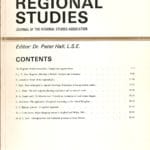
Regional Studies Publication launch

Changing policy environment
Republic of Ireland branch

Maintaining engagement in a changin

The Death of Regional Policy

John B. Goddard
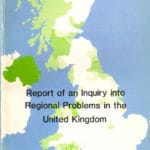
The Association fights back
An Inquiry into Regional Problems

The changing secretariat
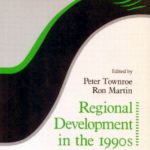
Regional Development in the 1990s
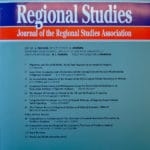
The number of issues increased

Activities: development and interna

Fortieth anniversary

RSA Global Conference in Beijing, C

Membership and status

Fiftieth anniversary
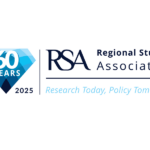
Sixtieth anniversary
Sorry, the timeline cannot be viewed on a mobile device.